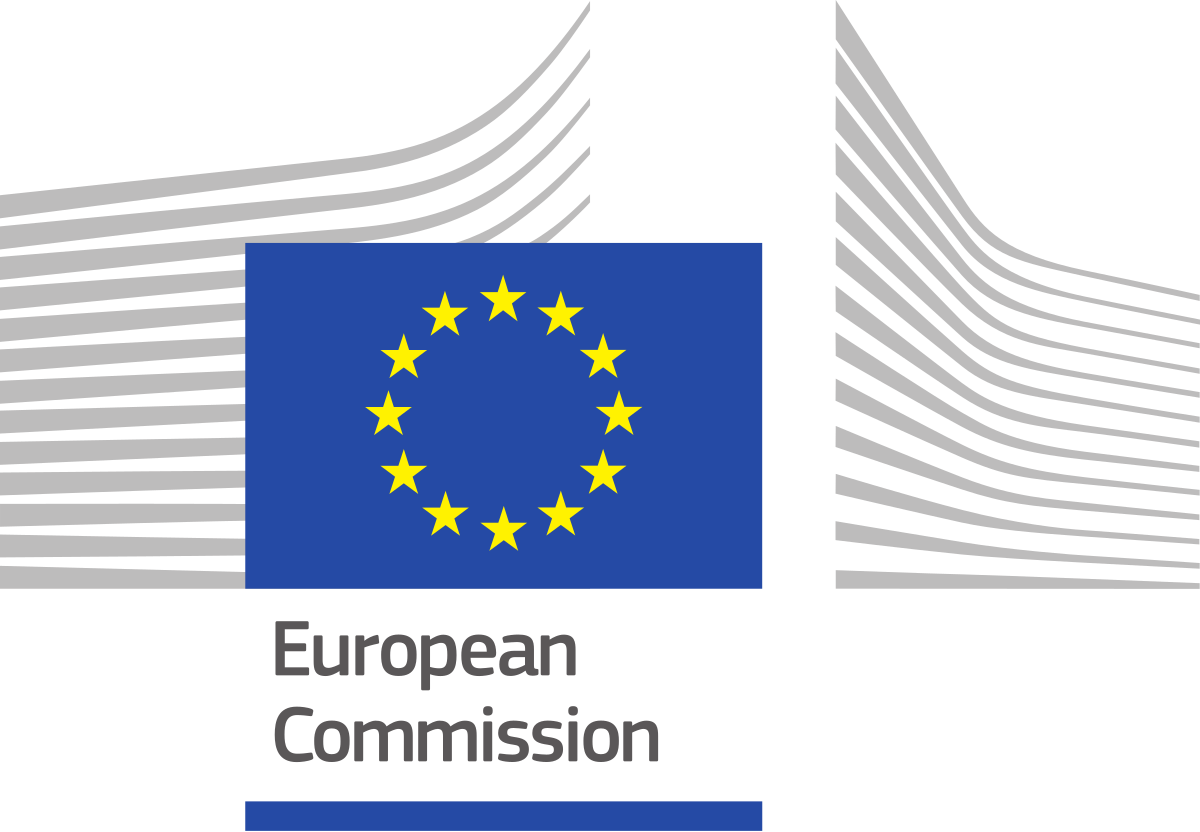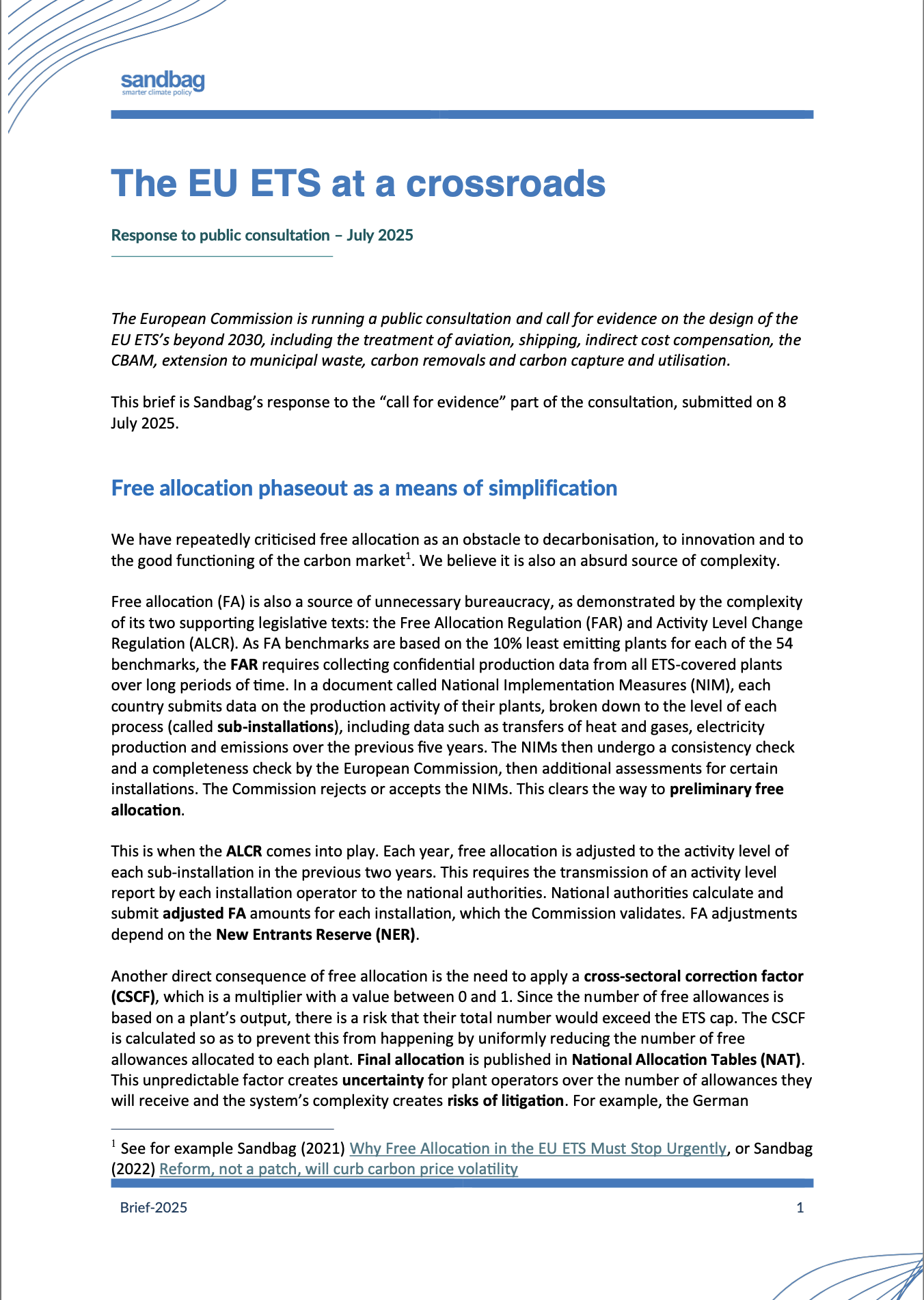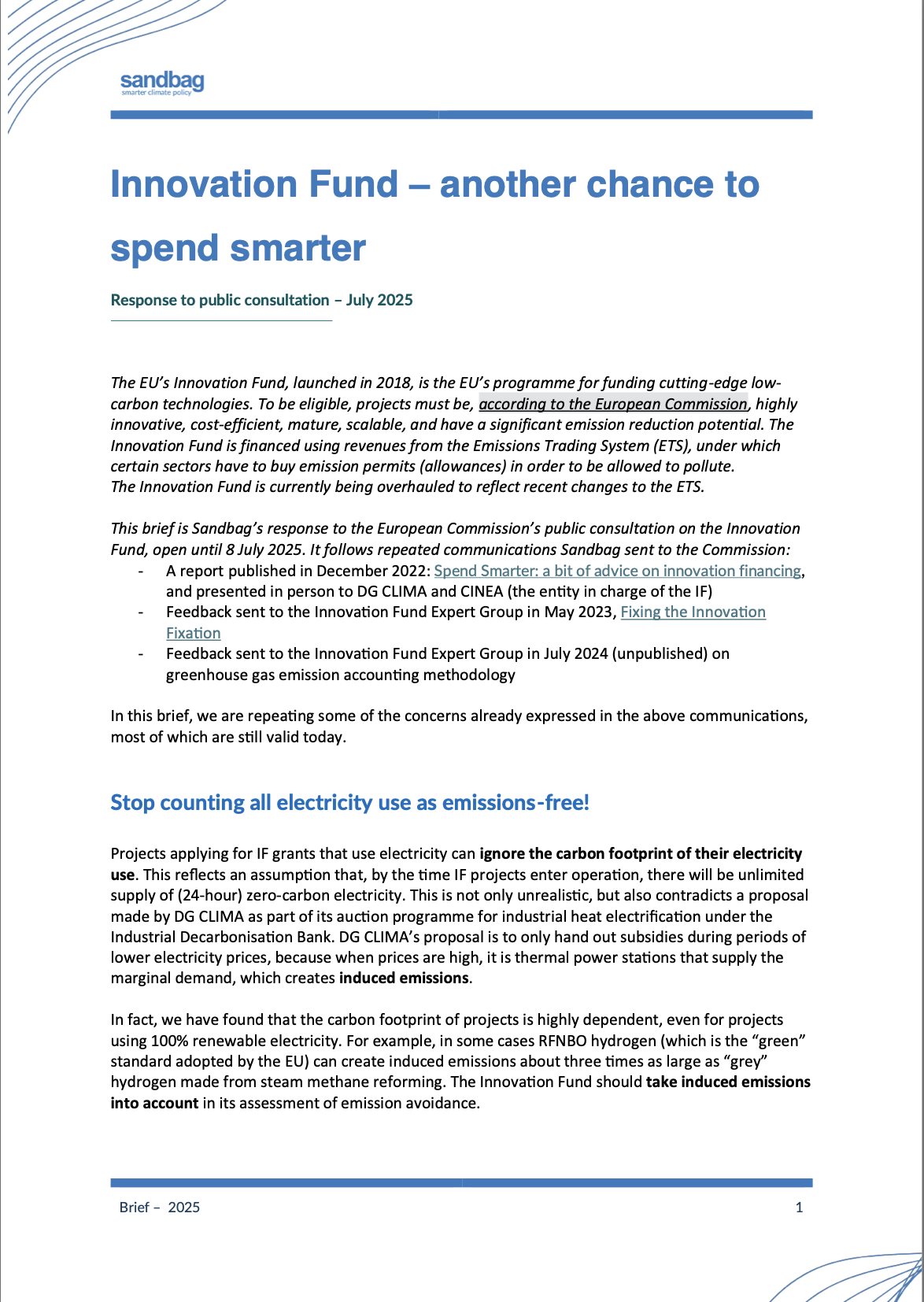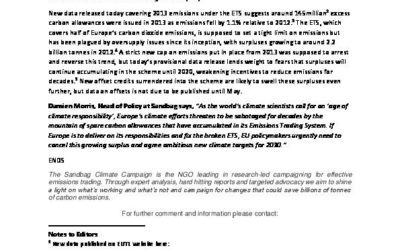Our main messages:
-
Simplify the EU ETS by phasing out free allocation
-
Aviation: put a seat belt on EUA supply
-
Free allocation: switch from process to products
-
Link indirect cost compensation to carbon-free electricity only
-
Reform the Innovation Fund to:
– Better assess the carbon footprint of electricity use
– Reserve grants to technology risk
– Reserve scale-up subsidies to poorly capitalised sectors -
Market Stability Reserve: reduce the reinjection rate as well as thresholds
-
Keep carbon removals out of the ETS
-
Do not shift CCU carbon accounting down value chains
-
Limit linking with other ETS
Read our responses on the European Commission’s website:

Related publications
May 25th 2023

WHAT WE DO
TOOLS
PUBLICATIONS
NEWSLETTER
Mundo-b Matogné. Rue d’Edimbourg 26, Ixelles 1050 Belgium.
Sandbag is a not-for-profit (ASBL) organisation registered in Belgium under the number 0707.935.890.
EU transparency register no. 277895137794-73.
VAT: BE0707935890.



